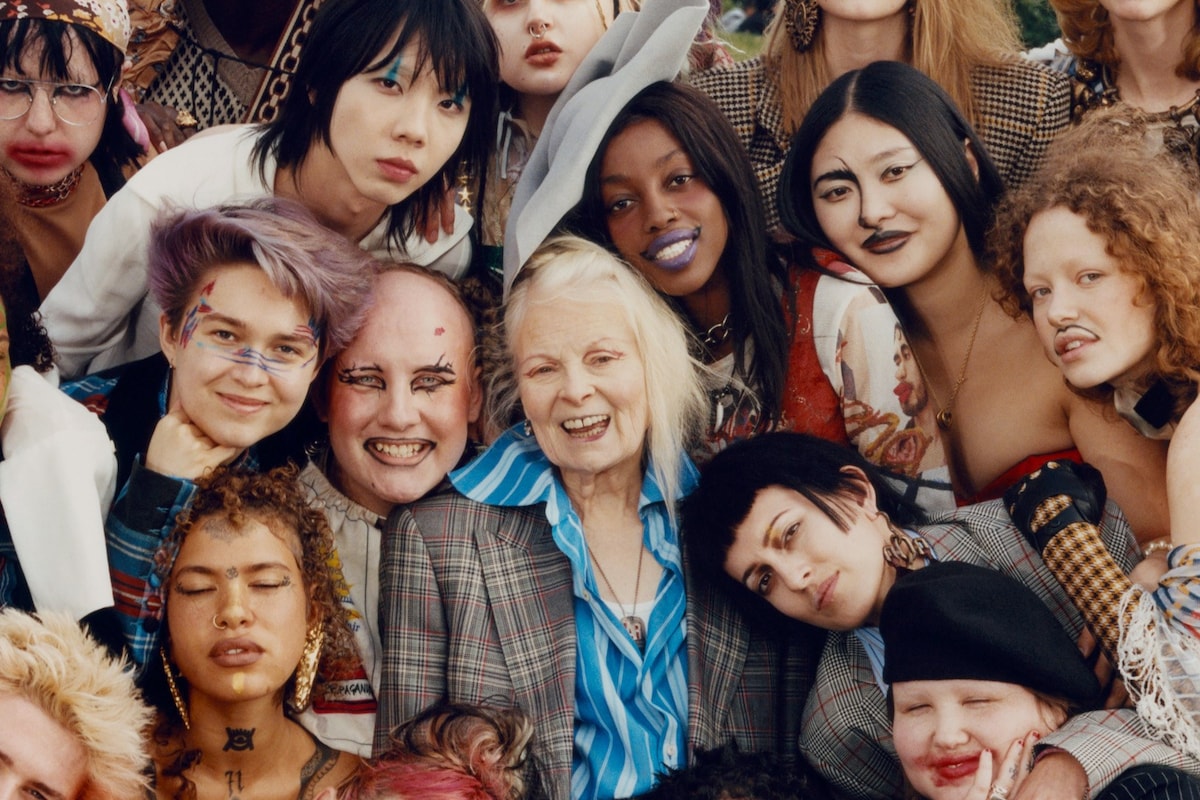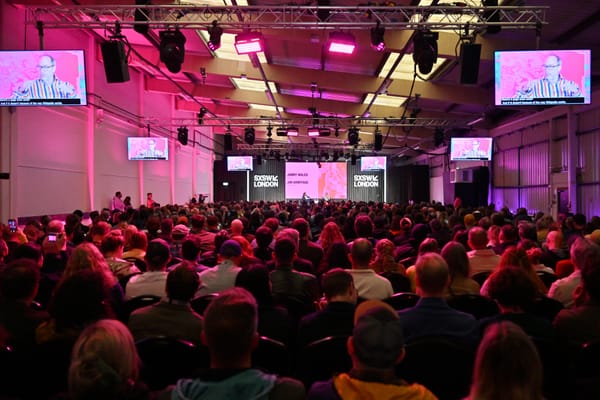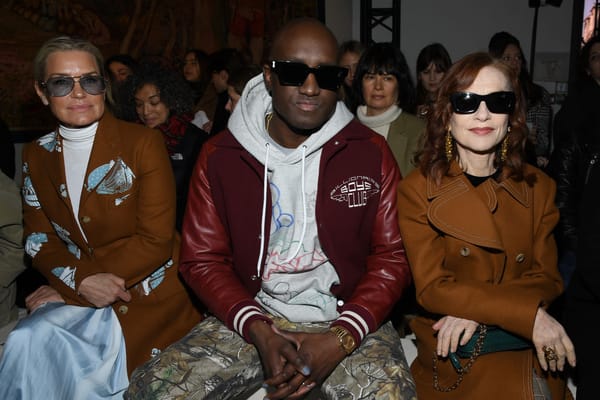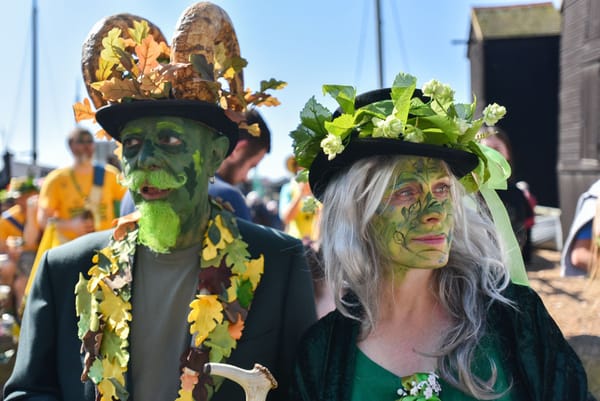How technology has become a new religion
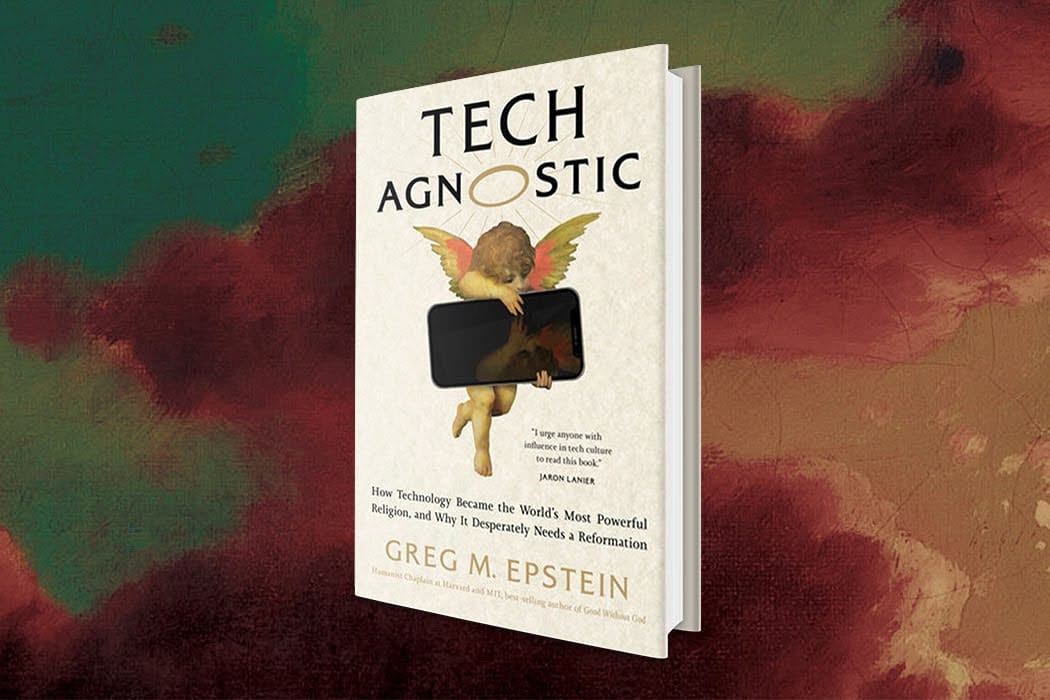
With Greg Epstein
In light of Trump’s re-election and the news that Elon Musk is to lead President Donald Trump's new Department of Government Efficiency (...DOGE), this week, we spoke to Greg Epstein.
A humanist chaplain at Harvard University and Massachusetts Institute of Technology, Epstein recently published the provocative new book, Tech Agnostic: How Technology Became the World's Most Powerful Religion, and Why It Desperately Needs a Reformation.
To even the most casual observer, there are plenty of parallels. Devotees of both religion and technology worship at the altar of deities; Allah, Yahweh, Brahma, Vishnu, Shiva. Steve Jobs, Elon Musk, Jony Ive. From Silicon Valley to the world, tech overlords are the new gods of innovation and progress. Here’s everything we learnt from Epstein.
New gods (for better or worse
Izzy Farmiloe: Why did you choose to write Tech Agnostic now and how did it come about?
Greg Epstein: I’d been working passionately, for a decade, to try to build nonreligious congregations… Facebook and other social media sites had overtaken religion as the primary driver of that kind of connection, in millions if not ultimately billions of people’s lives… And then I found myself wondering, if tech has become the new congregation, are there any other ways modern Silicon Valley tech is like religion? So I started to write down a list of comparisons. And that list has never really ended. Six years of intense work later, I’m still finding new parallels every day.
What did you hope to accomplish with this book?
I’m trying to change people’s mindset about the tech they use. I want to highlight that because it’s very different than telling people NOT to use tech, which is not my intention. Tech Agnostic isn’t called Tech Atheist — I understand some tech is worth believing in. It’s just way too hard to figure out which tech, because so much of the stuff seems created by people who are more interested in self-mythologizing than in genuinely helping people to, say, feel more connected or make the world better for everyone. I want people to ask themselves, when they use tech, are they behaving religiously? Is the way they use a given device or app or other form of tech really kind of like worship? Or are they being appropriately skeptical of these incredibly powerful and influential and rich institutions.
How do you feel the decline of religion has affected our society as a whole?
Like religion itself, the decline of religion, at least in the so-called “west” but arguably everywhere, has been a mixed bag. I’m not a “New Atheist,” or someone who says religion was all evil, OR all good. It has had some benefits for humanity, and some tragic, harmful flaws. Again, much like Silicon Valley tech… In many ways the main point of Tech Agnostic is that our current tech culture, despite being ostensibly secular and science-based, has completely lost its grip on reality and critical thinking. Instead of a decline in religion, it represents just a different and at times and ever more bizarre and impactful form of religion.
What impact do you believe technology is having on humanity?
Again, it's not an either-or, black-and-white, zero sum kind of thing. Is technology helping us to live better, healthier, more fulfilling lives in many ways? Of course. I can't imagine the person who would disagree. But also: overall life expectancy is going down in the US (in part because of the inequality a technocracy produces) and global carbon emissions are going up (in part due to AI, and its enormous energy requirements).... In Tech Agnostic I talk about how a lot of AI discourse is very similar to religious doctrines about Heaven and Hell… The problem is that our current track, technologically speaking, puts us somewhere in purgatory, for the foreseeable future.
How do you foresee our relationship with technology evolving in the future? Do you see technology becoming increasingly powerful in our lives and do you have any concerns about this?
Oh absolutely – it's becoming not just A powerful force in our lives but THE powerful force in our lives. Does anyone, anymore, imagine that once-dominant traditions like Christianity, Islam, Hinduism, or Buddhism, are having or are soon to have a comparable influence on humanity to that of tech? What is more impactful on our day to day lives? On our sense of what the future will hold? On how we connect and commune with others, as I mentioned above? Or even on our sense of what makes being human meaningful, these days? That last one is perhaps the item where you could reasonably say, (traditional) religion still wins out.
How it plays out in culture
Church & State: Elon Musk has been handed the power of the state
In a role which takes him far beyond the remit of traditional political party donor, Elon Musk is to lead President Donald Trump's new Department of Government Efficiency (Doge). In a statement Trump announced that Musk, alongside former Republican presidential candidate Vivek Ramaswamy, would "dismantle government bureaucracy, slash excess regulations, cut wasteful expenditures, and restructure federal agencies" in a role which will grant Musk even more influence within US governmental policy. Musk’s Rocket firm SpaceX has more than $8 Billion of ongoing contracts with the US government.
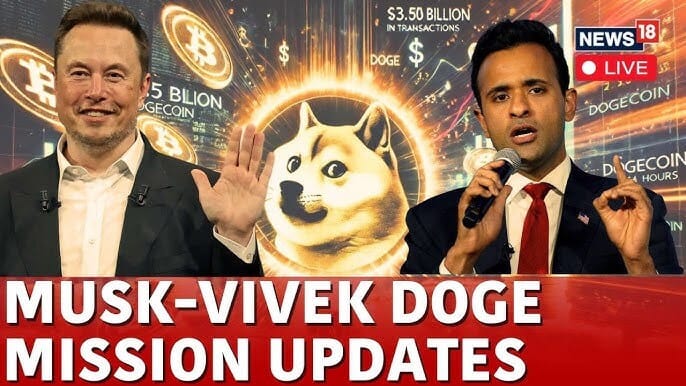
We need to talk about Elon Musk's X
As Thom Waite argues in Dazed Digital, “when Elon Musk bought Twitter in 2022 (and renamed it X) he was widely seen as a deluded narcissist, who’d just blown $44 billion to have his subpar memes beamed directly into our newsfeeds. In the following years, though, a darker picture emerged, as hate speech and other harmful content thrived on the platform, and right-wing politics gained the upper hand.
“Now, in the aftermath of the 2024 US election, many users are questioning whether X played a direct role in putting Donald Trump back in the White House. Some have gone even further, joining a mass exodus that’s seen rival platforms like Bluesky pick up more than 700,000 new users in the last week alone.”
The Great X-odus is here
The Great X-odus: Is this finally the end of Twitter?
In episode four of our podcast Dazed and Discoursed, hosts
Halima Jibril and Elliot Hoste are joined by Thom Waite, contributing features writer at Dazed, to discuss his article, “We Need to Talk About Elon Musk’s X”. The trio explore why people are fleeing Elon Musk’s platform in record numbers. Do we have a duty to confront the spread of right-wing ideology online, or should we abandon ship entirely?
Listen here.

Feeling powerless, we turn our attention inwards
“If you have the idea that you can no longer change the world, all you’ve got left is to change yourself. Your body becomes the territory that you can exercise control over because no one is going to look after you.”
— Adam Curtis in conversation with Natalie Olah for Crack magazine, which you can read in full here.
As we enter the void
We are reaching a point where 90% of content online is predicted to be created by A.I by 2026. 56% of all written word online are already estimated to be written by AI.
So what's next?
The search for ‘actual intelligence’ over ‘artificial intelligence’ will take precedence as consumers seek emotion and humanity. “People will rebel against the gamification of identity and gravitate towards incoherence and unpredictability as a way to resist algorithm-based conformity and automated social expectation.” — Charlie Engman, Art Director, Photographer & Director,Beyond Beauty Report, Dazed Studio

But what does this mean for brands?
Chaos Theory
Uncertain times issue in a new state of absurdity. As reality becomes increasingly surreal, consumers embrace eccentricity, fun, humour and all things weird.

Let go of the reins
In a saturated online space, people are searching for something to believe in — a constant pull between the mystical and the scientific. Dial into the behaviour of audiences shape shifting on a daily basis and find new icons to believe in. A brand can do this by allowing its brand narrative to be loosened and re-interpreted through multiple ‘gods’ of today. Creating a new set of disciples to spread your message in their own voice.

Professional fandoms & new brand rituals
Realise the power of professional fans who act as die-hard voices for a brand, message or person.
Dive into Reddit threads, fan pages and beyond to collaborate and activate with secret stars who drive these fandoms, and empower them to create.

Might be of interest
Elon Musk wants his army of humanoid robots in your home
The billionaire says that his Tesla Optimus bots can do your chores, look after your kids, or just be your friend... the jokes write themselves really. Read more here.
